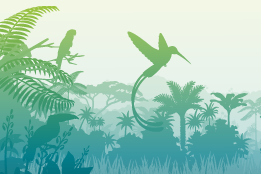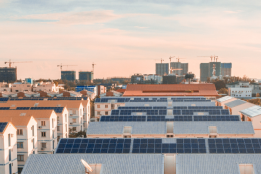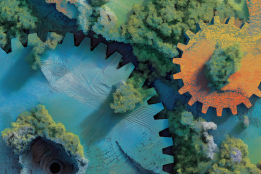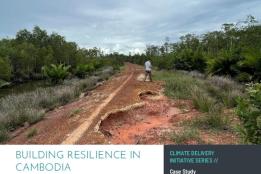In many resilience-building programs, women are often perceived as the group most in need of protection. But in Tonga, they are also just as likely to be the protectors and leaders: from technical experts in key ministries to community advocates and citizens actively involved in setting priorities, designing projects, and allocating funds.
In Samoa, women have played a central role in shaping and implementing village-level agricultural resilience, rainwater harvesting, and waste management projects, as well as overseeing and maintaining community pools. Some residents say women “lead the development of the village,” and that is why, they say, things run smoothly.
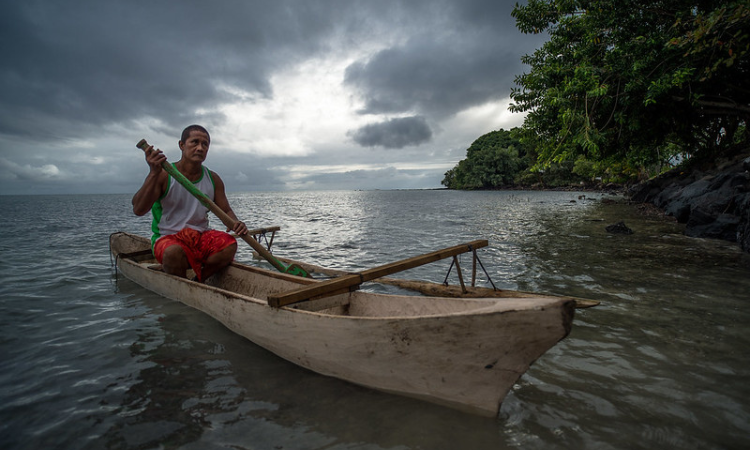
This Week the CIF, its multilateral development bank (MDB) partners, and stakeholders from across the South Pacific are meeting in Apia, Samoa for an end-of-investment “close-out” workshop.* The meeting takes take stock of the results of investment plans, under the CIF’s PPCR program, for the governments of Papua New Guinea, Samoa, and Tonga, as well as a “Pacific Regional Track” which includes all three island states. These are three of the most vulnerable small island development states because they are prone to sea-level rises, intense weather events, and warming oceans. And the impacts on communities have been devastating.
Under PPCR, projects were designed to promote women’s full participation and leadership, recognizing the unique skills, knowledge, and ideas they could bring – and their distinct perspectives on resilience-building.
A project in Tonga, implemented by the Asian Development Bank (ADB), for example, made deliberate efforts to recast women’s role from “beneficiaries” to “equal partners.” Targeted outreach and awareness-building led to women making up two-fifths of participants in project consultations, and more than half of the board of a PPCR-financed fund that supported small-scale resilience-building initiatives. The fund established projects in thirty-three communities, and close to 80 percent directly benefited women or other vulnerable groups. Over 30 percent of the projects were led by women’s groups.
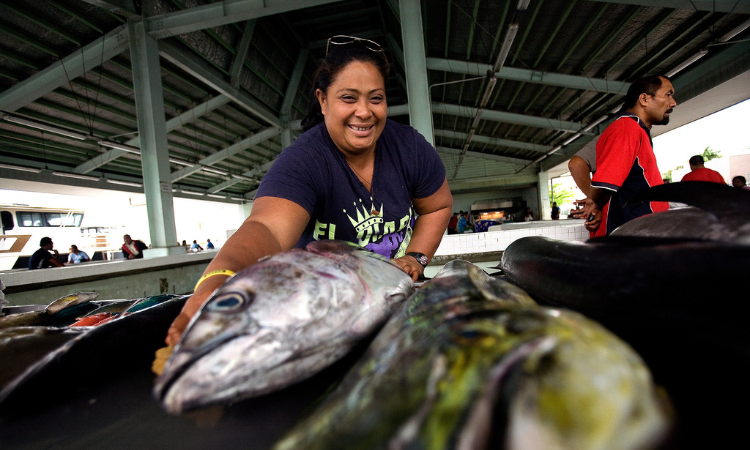
The Tonga project also delivered disaster risk management training to more than 1,400 people, almost half of them female, and provided university scholarships for 20 people, including nine women employed at key ministries.
The Samoa project, implemented by the World Bank, focused on building resilience in coastal communities. Traditional villages typically have a women’s village committee, which plays a key role in engaging women in everything from project design to building activities, management, and maintenance. Women made up almost half of the 14,900 project participants nationwide.
Women were particularly involved in subprojects relevant to their duties and roles, such as farming, collecting water, and keeping the village clean and beautiful. They designed and implemented rainwater harvesting and waste management activities, removed trash and planted trees, and have been overseeing newly built community pools.
As the CIF, the three governments of Papua New Guinea, Samoa, and Tonga, and our partner MDBs gather to close-out the CIF’s investments in the South Pacific, they will look back at the results of a variety of themes, projects, and programs. One notable achievement that all three countries can take pride in is the significant role women have played in protecting and leading their communities to build resilience.
* The workshop is held in Apia, Samoa from Mar 17 to 21, 2025.
** All images are courtesy of the Asian Development Bank

